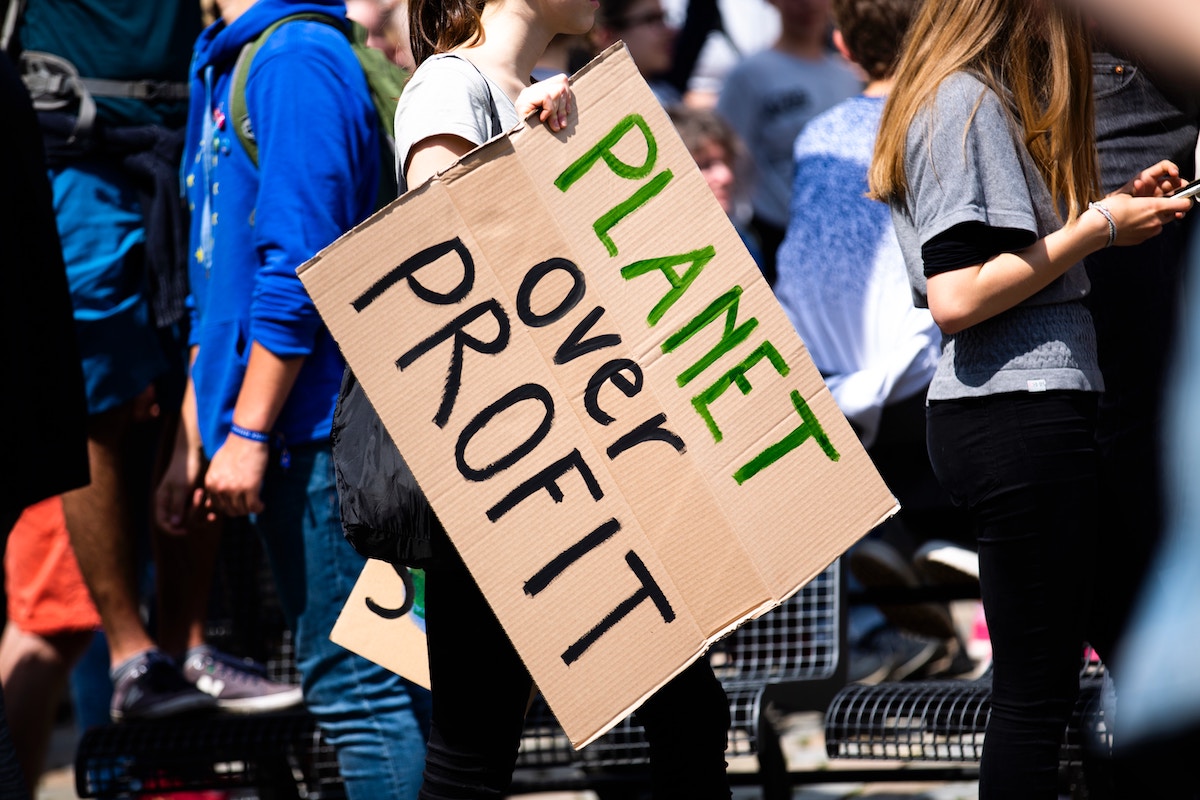Top Stories
Market Solutions to Climate Change: An Opportunity for Bipartisanship
Progressive environmentalists should welcome the addition of young conservatives to the broader environmentalist movement, but they must check some of their legislative ambitions at the door in order to pass meaningful, effective environmentalist policies.

In contemporary American politics, environmentalism is almost exclusively associated with the Left. This is an odd phenomenon, for conservationism and conservatism both stem from the same impulse: a desire to preserve one’s inheritance, to be cultivated and passed onwards for posterity. Still, despite this apparent congruity, American conservatives have ceded ground to their political opponents on environmentalist sentiment for decades.
But this is changing. On the issue of climate change, in particular, younger Republicans are virtually indistinguishable from Democrats within the same age range. According to new polling, 77 percent of Republicans between the ages of 18 and 38 say that climate change is a serious threat, as compared to only 51 percent of Republicans over the age of 39. This generational divide is observable in a host of young activist groups like the American Conservation Coalition, a prominent new nonprofit founded by conservative millennials which advocates for “a mix of free-market, pro-business, and limited-government environmentalism in legislatures, college campuses, the political arena, and beyond.” The newest generation of Republican politicians also tend to be noticeably more engaged in the discussion of environmentalist initiatives, with young GOP congressmen like Dan Crenshaw, Garrett Graves and Carlos Curbelo all energetically proposing a host of market-based alternatives to progressive environmental legislative efforts like the Green New Deal.
These new developments present an exciting opportunity for the crafting of effective, bipartisan policy solutions to climate change, but they are accompanied by new challenges that will have to be overcome. Specifically, left-wing environmentalists must be willing to compromise with those across the aisle if they wish to pass policies to address environmental concerns. This could initially prove to be difficult: as a consequence of progressivism’s monopoly over issues like climate change, environmentalism is often associated with the broader progressive agenda, and proponents of “climate justice” argue that solutions to climate change must also aim to solve income inequality, gender issues, racial injustice, and a litany of other problems that have a tenuous relationship to carbon emissions and rising global temperatures. Saikat Chakrabarti, the former chief of staff for Alexandria Ocasio-Cortez, articulated this view earlier this year when he admitted to the Washington Post that the Green New Deal “wasn’t originally a climate thing at all,” but rather a “how-do-you-change-the-entire-economy thing.”

In order to pass important environmental legislation, progressives must be willing to compromise rather than insist on pairing environmentalism with social justice initiatives that cause conservatives to balk. The variety of market-based solutions proposed by conservative environmentalists have the potential to be enormously effective in the fight against climate change, but those who wish to use the issue of climate change as a tool for the radical transformation of America’s economic system will have little luck finding common ground with otherwise sympathetic compatriots on the other side of the aisle.
“The policy solutions that are going to be most effective at reducing greenhouse gases quickly don’t require that we go on a larger political project of change,” says Joseph Majkut, the director of climate policy for the Niskanen Center, a politically idiosyncratic D.C.-based think tank that works extensively on bipartisan climate policies. “The system as it’s organized today can be modified to reduce greenhouse gases, and then we can talk about ways to make sure that poor and vulnerable people are not adversely affected by that policy change. But I think that if we have to solve American politics before we solve climate change, we’re going to have a real problem.”
The good news is that markets are perhaps the most effective tool for combating climate change. An increased government presence in some areas of the economy might be necessary to harness the market’s potential—Majkut is working on carbon pricing legislation that he hopes could be attractive to both Democrats and Republicans—but the spontaneous order of the market, with the right set of incentives, is uniquely situated to attack the climate challenge from the bottom up. Although well-intentioned, central planning schemes like the Green New Deal are incapable of addressing the issue with the same efficiency.
“Allowing for markets to be the tool we use instead of mandates is going to be an important jump [for the Left],” says Majkut. “Respecting the history of successful environmental regulation that we have, the climate problem for greenhouse gas emissions is so pervasive in everyday life, and it comes from so many different sectors and places and corners of the economy, that we need to use tools to get everybody on board. It’s going to be a very hard challenge to manage from desks at the EPA. We’d much rather have leadership teams at every firm in the United States figuring out how to reduce their greenhouse gas emissions while still meeting the needs of their customers.”
Progressive environmentalists should welcome the addition of young conservatives to the broader environmentalist movement, but they must check some of their legislative ambitions at the door in order to pass meaningful, effective environmentalist policies. Similarly, conservative environmentalists will have to open themselves to the possibility of a federal government that is occasionally more activist than they might prefer: Directing market mechanisms towards reducing greenhouse gas emissions will require the government to incentivize innovation around the reduction of private industry’s reliance on fossil fuels. But the free market continues to be our best bet in the pursuit of a greener future.
For some on the environmentalist Left, this is an unsatisfactory conclusion. The more radically anti-capitalist segment of the environmentalist movement views ending climate change as concomitant with ending capitalism. Naomi Klein, the author of the influential 2014 book This Changes Everything: Capitalism vs. the Climate recently remarked: “I find myself more and more impatient with these ideas that the climate solutions we should be proposing are the ones that pacify the Right and that reassure a world based on a hierarchy of human lives and domination…you have all of these so-called climate-policy experts who say we should be talking about a revenue-neutral carbon tax, nuclear power, and geoengineering because that is not threatening to people who hold that worldview.” In other words, Klein continued, “I think we need to get the scale of the transformation right and the conversation right, that we are talking about changing how we live; we’re talking about changing our economy.” The headline of an op-ed published last year in the Guardian is even more blunt: “Ending Climate Change Requires the End of Capitalism.”
By contrast, many on the Right are still unwilling to come to terms with climate change as an issue that requires government intervention. This is changing, but conservatives still have significant work to do in order to offer meaningful alternatives to progressive climate legislation, as opposed to merely poking fun at the more absurd elements of the environmentalist movement.
Compromise will be necessary, as it often is in our constitutional system. But those with a genuine interest in climate solutions should view these developments as an exciting opportunity. On environmental issues, the Left and the Right may find there is fertile ground for bipartisan cooperation: a welcome tonic for our polarizing times.






